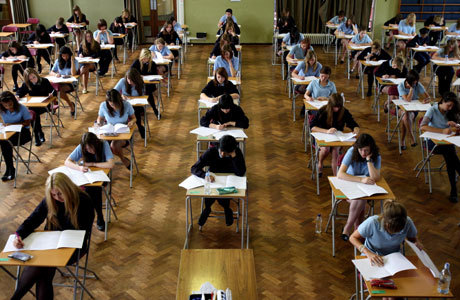 More money, better services? You might have thought that Gordon Brown had already tested
that theory to destruction, but here it is again in the coverage of today’s Institute for Fiscal Studies report on education and schools
spending. The IFS highlights that education is facing the biggest cuts over a four year period since the 1950s. And the coalition’s opponents are gleefully seizing on this as a problem in and of
itself.
More money, better services? You might have thought that Gordon Brown had already tested
that theory to destruction, but here it is again in the coverage of today’s Institute for Fiscal Studies report on education and schools
spending. The IFS highlights that education is facing the biggest cuts over a four year period since the 1950s. And the coalition’s opponents are gleefully seizing on this as a problem in and of
itself.
But it isn’t, really. As CoffeeHousers will know, education funding increased massively during the past decade. The IFS admit this themselves:
And what did we get in return? The latest OECD PISA rankings put British schoolchildren 16th in the world for science, 25th for reading, and 28th for maths. Back in 2000 we rated in the top ten countries for all three subjects.“Over the decade between 1999–2000 and 2009–10, it grew by 5.1% per year in real terms, the fastest growth over any decade since the mid-1970s. As a result, it rose from 4.5% of national income in 1999–2000 to reach a high point of 6.4% in 2009–10.”
Time and again, research shows what matters is not class sizes or budgets, but the quality of teachers and the level of competition between schools — we learn this from Sweden’s free schools, America’s charter schools and New Zealand’s Tomorrow’s Schools. And, what’s more, work by the education academic Alison Wolf suggests that high education spending also bears no relation to economic growth.
Greater autonomy and choice, these are what improve standards. It is reform based around these ideals that we must pursue. The size of the cuts is basically a distraction.
Ruth Porter is Communications Director of the Institute of Economic Affairs





Comments